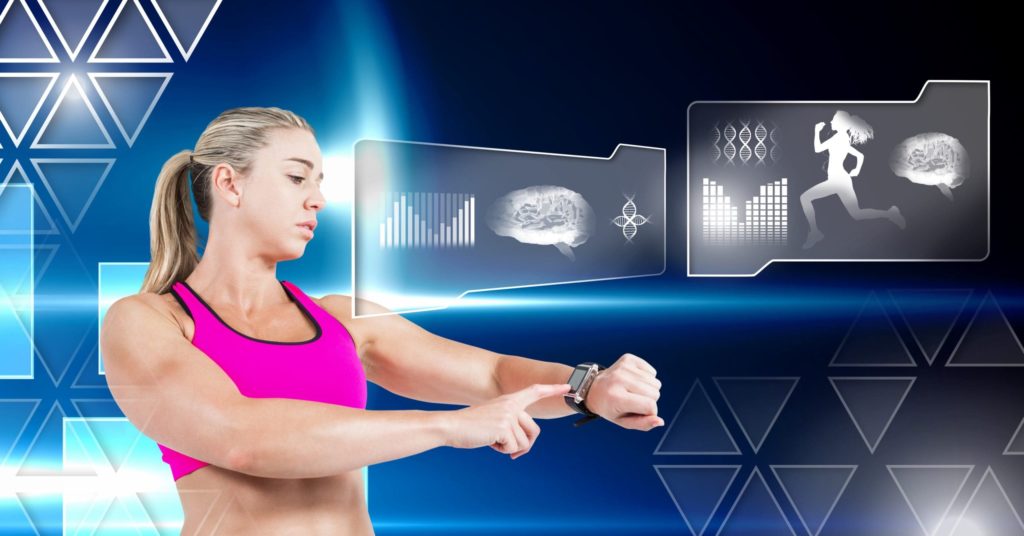We hear a lot about technology and how it improves sport performance in the news and various research avenues. Sport is an activity that involves the physical exertion and skill in which an individual, or a team, competes against others for the purpose of entertainment (and physical exercise). So how has technology impacted sport?
Over the years, numerous technologies have been introduced to assist in improving athlete performance and they have changed how we view various sports, as well as changing sports themselves. A few notable technologies (of the many) include video cameras, wearable technology, virtual reality and technology to assist in conditioning.
Video Camera
One of the simpler technologies to be introduced was the video camera. The filming of athletes training, and sporting games, allowed coaches and trainers to review and analyse athletes more closely. This aids in preparing training programs and exercises leading to improvement for individuals. It also helps when games or matches are recorded and reviewed to see the strengths and weaknesses or opponents.
And for spectators, as video camera technology improves, spectators can now watch sports from multiple angles and get a better insight into the sport and what the athlete experiences, for example, miniature cameras can be placed on bikes or on formula one race cars.
Wearable Technology
Various technological devices have been developed to be ‘wearable’. Athletes can monitor their general health through heart monitors, pedometers etc. and this data can then be analysed through various software programs and applications, or by sport scientists and performance coaches.
Over the last couple of years, we have seen wearable technology grow at a rapid speed in the fitness industry. There are so many options with FitBit, Garmin, Samsung, and many others. There is one suitable for all fitness levels and purposes. You can monitor your steps, heart rate, even your sleep. Whether you are a professional athlete, or someone who is only just starting to get active, these devices are a game changer in the industry, aiding in improving the health of individuals.
Virtual Reality
Virtual reality allows for athletes to practice their chosen sport, techniques and training programs through real condition simulations without being in the real situation or scenario. Tennis or golf players can continue to train in the rain on a sunny court or course indoors. Athletes can be in a simulator and be wired up with sensors that provide data that can be analysed while they feel like they are in a real sport situation, whether that includes wearing ‘goggles’ or viewing a full sized screen with 3D imagery. You can even participate in a golf simulator in the middle of the ocean on a cruise ship. Virtual reality has been deemed the ‘safe way’ to practice new and dangerous skills before attempting them for real. Pilots and astronauts also train in simulators, it is an integral part of their training program.
Conditioning
Technology has been developed to assist in the conditioning of bodies based on genetics and biological factors. Genes can be observed and studied to match athletes to specific sports, and help condition their bodies to particular physical activities. These studies can determine how one athlete will respond to different types of exercise, from weight training through to high intensity training, based on genetic markers. Data is analysed by sport scientists and performance coaches, with findings being used to improve muscle movement, endurance and specific skills as required.
Can you compare use of technology to aid performance to drugs and steroids?
Drugs, steroids, and technology are third party items that aid an athlete. The difference between drugs/steroids and technology is huge. In my opinion, they can’t really be compared. Drugs are digested by an athlete and makes physical changes to the body to improve physical performance as a direct result. Technology aids an athlete to improve their performance, but without directly changing the athletes body. Drugs in sport are illegal and drug testing is big in the industry. But having said that, I’m sure this would spark a big debate and not everyone would agree.
Is it fair to compare teams or individuals who use technology when competing against those who don’t?
Regardless of how great technology is and how much it can assist an athlete, the bottom line is to be great, an athlete needs to have talent and perseverance. It does put athletes at an advantage over others if they have access to technology to help them with their training and conditioning. But so does having a coach, dietitian, sports psychologist, training partner, physiotherapist, personal gym … all these things help an athlete to perform in one way or another. So where do you draw the line with advantage and fairness when competing?
In conclusion, technology and sport go hand in hand these days, and it will continue to do so. As for being a professional athlete, at this stage anyway, the aid of technology is not enough, it doesn’t replace actual talent, hard work and perseverance and I don’t think it ever will. Well, unless we are all replaced with robots. It will be exciting to see what develops in the next few years.







